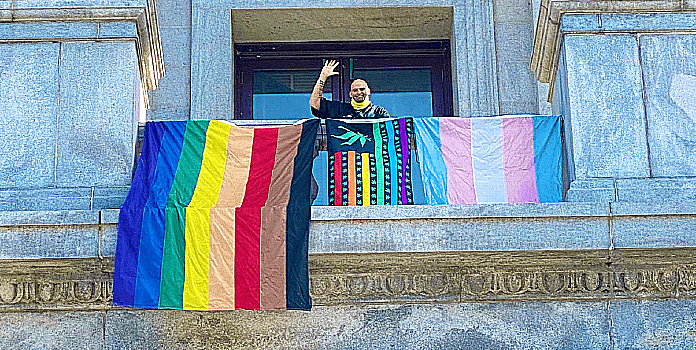(Casey Harper, The Center Square) The legislative fight against Diversity, Equity and Inclusion programs in education is picking up steam nationwide.
U.S. Sen. Marco Rubio, R-Fla., introduced the Fairness in Higher Education Accreditation Act, which would ban accreditation officials from considering an educational institution’s DEI or affirmative action policies when determining accreditation.
DEI departments have exploded at universities in recent years with a spike in new administrators who enforce liberal equity and racial policies at the educational institution. These programs usually embrace the idea of systemic racism, speak of the U.S. as a deeply racist nation, and push for the most aggressive side of the LGBTQ agenda.
In recent years, more and more federally recognized accreditation agencies have implemented DEI requirements for applicants, forcing schools to embrace progressive ideas on race and gender or risk losing their accreditation.
“Wokeness should not be mandatory,” Rubio said in a statement after introducing the bill, which the Florida senator argues “seeks to prevent a politicized Department of Education from further forcing diversity, equity, and inclusion policies into higher education.”
Practically, DEI enforcement manifests in various ways. In a fact sheet published by the Department of Education, the agency touts President Joe Biden’s emphasis on DEI and lays out several examples of potential DEI activities.
From the DOE:
- diversity, equity, and inclusion training;
- instruction in or training on the impact of racism or systemic racism;
- ”cultural competency training or other nondiscrimination trainings;
- efforts to assess or improve school climate, including through creation of student, staff, and/or parent teams, use of community focus groups, or use of climate surveys;
- student assemblies or programs focused on antiharassment or antibullying;
- investigations of, and issuance of reports concerning the causes of, racial disparities within a school; or
- use of specific words in school policies, programs, or activities, such as equity, discrimination, inclusion, diversity, systemic racism, or similar terms
The federal agency goes out of its way to argue that these activities do not “create a hostile environment on the basis of race.
U.S. Sens. Rick Scott, R-Fla., and Mike Lee, R-Utah, are helping lead the effort to undo these federally backed requirements for accreditation.
“We need to make sure that no school is judged based on whether a DEI agenda is used,” Scott said.
Lee said the effort “safeguards against manipulating the accreditation process to advance ideological agendas.”
The Senate effort is the latest pushback against DEI. State lawmakers and governors have already begun taking on DEI policies, as The Center Square previously reported.
Texas Gov. Greg Abbott signed a bill last week that will end taxpayer funding for DEI programs at public colleges and universities.
Meanwhile, the U.S. Supreme Court is taking on the affirmative action issue and may prohibit the policy. The high court is expected to issue a ruling in the coming weeks on the case, which considers the race-based admissions policies at Harvard and the University of North Carolina at Chapel Hill.
Specifically, the ruling in this case could have a major impact on schools’ affirmative action policies and how they discriminate based on race, especially whether schools receiving federal funding can continue to do so.
Students for Fair Admissions, a nonprofit group boasting 20,000 members, filed the relevant lawsuit against Harvard and the University of North Carolina in 2014. The lawsuit alleges that the policies discriminate against white and Asian-American applicants. Both SFFA cases have been defeated in lower courts, but now the Supreme Court will have its ruling out imminently.

